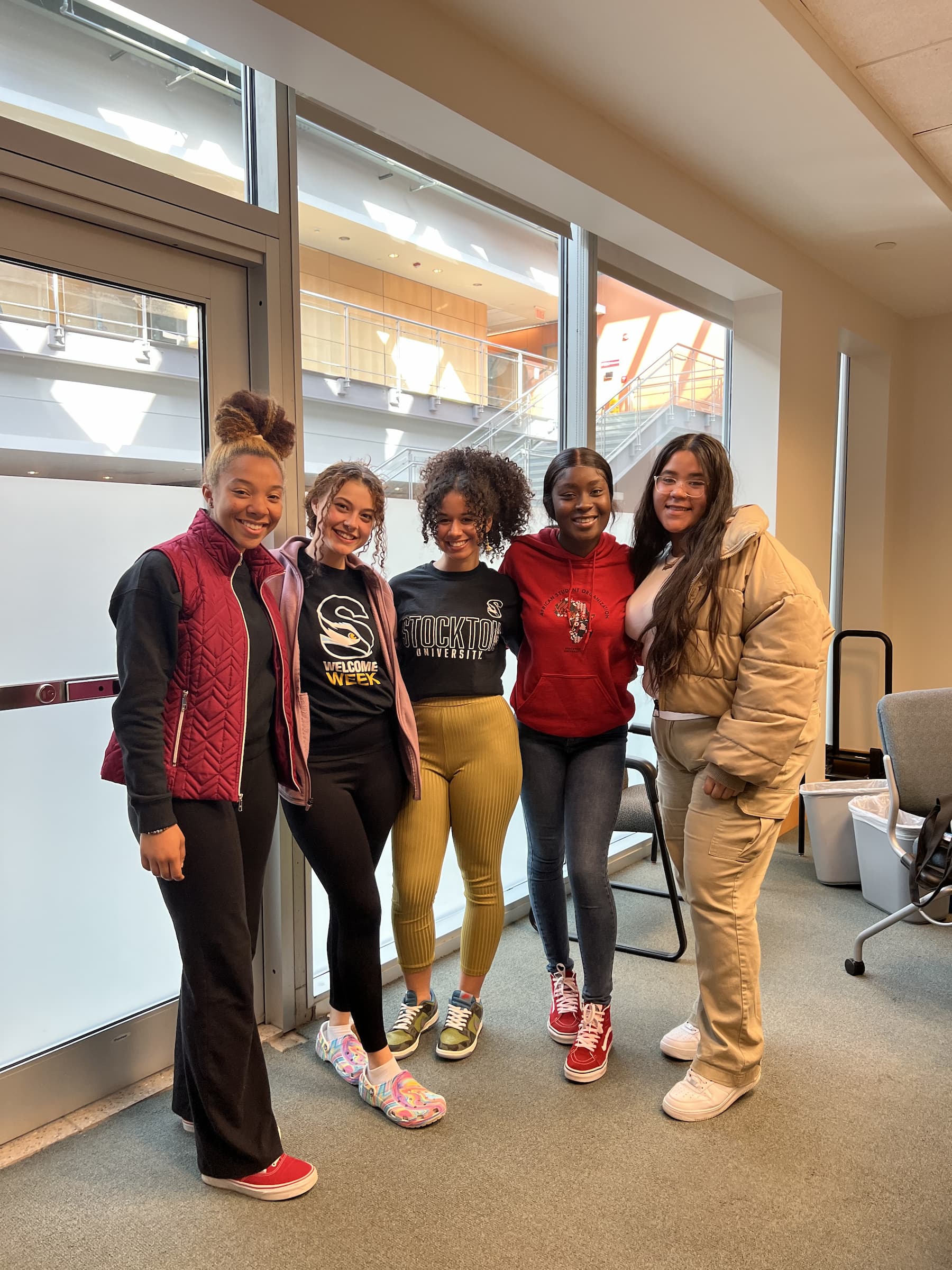Yesenia Pacheco
Unhealthy racial experiences in higher education can create barriers for first-generation women of color. Yesenia Pacheco, an equity intern in the Office of Student Transition Programs and a senior Social Work major, saw lower graduation rates for Black and Latinx female students reflected in past data and wanted to do something to reverse those trends for future generations.
She reached out to Maya Lewis, associate professor and program chair of the Social Work Program, for her support in creating a space where women of color can “unpack racial experiences and work on rebuilding trust and healing through discussion circles,” Pacheco (second-left, in a shirt with the Stockton "S") explained.
That space began as a cohort of six first-generation women of color who met for five sessions and ended as a circle of friends who bonded over often personal conversations that left them feeling empowered to be social justice advocates.
Lewis was honored when Pacheco reached out to her and was impressed by her initiative in planning and developing the program.
"To me, it was like a dream come true," she said, noting that they share the same sentiments "with regard to having a place for women of color to talk about what it means to be a woman of color at Stockton and how to translate these experiences to the future."
Talking is a step in facilitating healing and verbalization leads to validation, Lewis explained.
Participants expressed their thoughts in reflection journals that Pacheco made, and they discussed topics ranging from “Trauma or Drama”' to “Getting by at a PWI” while touching on microaggressions, societal beauty standards, mental health within communities of color and more.
"I think people are realizing that it's not enough to just draw diverse students to your institution. But, when they are there, they have to feel included because if not they are more likely to leave," explained Lewis.
In listening to the students' stories and struggles, Lewis witnessed first-hand just how much support means to them.
Pacheco explained how the sessions were designed.
"They help rebuild trust among the group members, share racial experiences and best practices for navigating home and college, and identify their own strengths and their role in promoting social justice within their communities."
Their healing circle became known as “Woman’s WORTH.” The word WORTH was selected as an acronym to stand for Working on Rebuilding Trust and Healing.
"Yesi is a dynamic woman who has a lot of passion and wants to make a difference in the world. She's smart, but she also knows how to relate to anyone. I don't know if you can teach that. That's inherent," said Lewis.
From her own experience participating, the discussions allowed Pacheco to feel vulnerable, but also “powerful and resilient by just being empowered.”
Another participant said, “The amount of closure, perspective, and bonding was much more than I had anticipated and left me feeling very welcomed and understood.”
The healing circle gave each woman the opportunity to feel included, seen and heard.
"This is just the beginning for Yesi," said Lewis, who is happy she decided to choose Social Work and excited to see where she goes next.
This Voice was originally published in 2022. At the time of publication, Pacheco was just awared a $10,000 scholarship from the Taco Bell Live Mas Foundation that went towards helping her reach her goal of becoming a licensed clinical social worker. She is now pursuing her Master's degree in Social Work and is now a graduate coordinator for Student Transition programs.
Related Articles:



